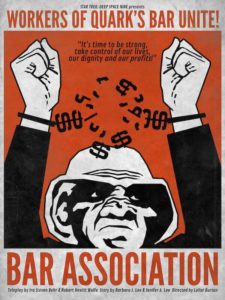The Writer’s Guild of America has taken a bold step by striking against the studios, and it fills me with immense joy to witness the delay of Stranger Things. For those who may be unaware of the details, let me provide you with a summary as reported by the Nation:
- Writers asked for 2% additional revenue, Studios offered .004 percent instead (that’s two leading zeros!)
- Production budgets increased by 4% over the last decade, and writers’ pay decreased by 23 percent with an inflation adjustment
- Writers asked for a total of $429 million for 20k members, studios profits are at $30 Billion with $780 Million to CEO pay
The studios are in the wrong. This is not up for debate. The Universe is speaking. It is speaking for the unions.
It’s vital to remember that these concerns reach beyond the realm of entertainment. This is a battle fought for the rights of all of us grinding for a fair paychecks. As we stand in solidarity, let us draw inspiration from the wise words of the lovable himbo Rom: “Workers of the World Unite, you have nothing to lose but your chains.”

How do we help the WGA?
I was in college in Los Angeles when the last time the writer strikes against the studios. It was an extraordinary experience, filled with a vibrant energy that only creative professionals can bring. The strikers showcased next-level dad joke game with slogans like “we write, you wrong” and “unfair is unfunny.”
Now I’m up in San Jose, with an office job, and wondering what the rest of us can do to help. Then I thought to myself, if boycotts over beer cans can make things worse, then boycotts are still effective. We can even do it better. No bullets or bad beer necessary!
I cut off Hulu. Then I cut off HBO and the two other streaming services I was paying for. I’m not paying for content right now. Not while the strike is going on.
As an unintended consequence, I got some of my brain back too.
Oh no! I have spare time?!
This memorial day weekend, I would’ve normally relaxed with my partner (also boycotting) and streamed. Distracting ourselves, we tried playing our Switch. It worked for a bit, but long story short we needed something different, and something random.
I’m almost sad to admit it, but I entered a public library for the first time in at least two years.
I found that my card was active, and picked up a random book on the Tudor dynasty and a book from Karen Marie Moning, an author I once loved and had long forgotten about.
It’s been a bit too long since I’ve enjoyed library books.
So big thanks to WGA and the universe for putting that together. I hope studios get the message the universe is sending them too.
Art Credit to J.J. Lendi